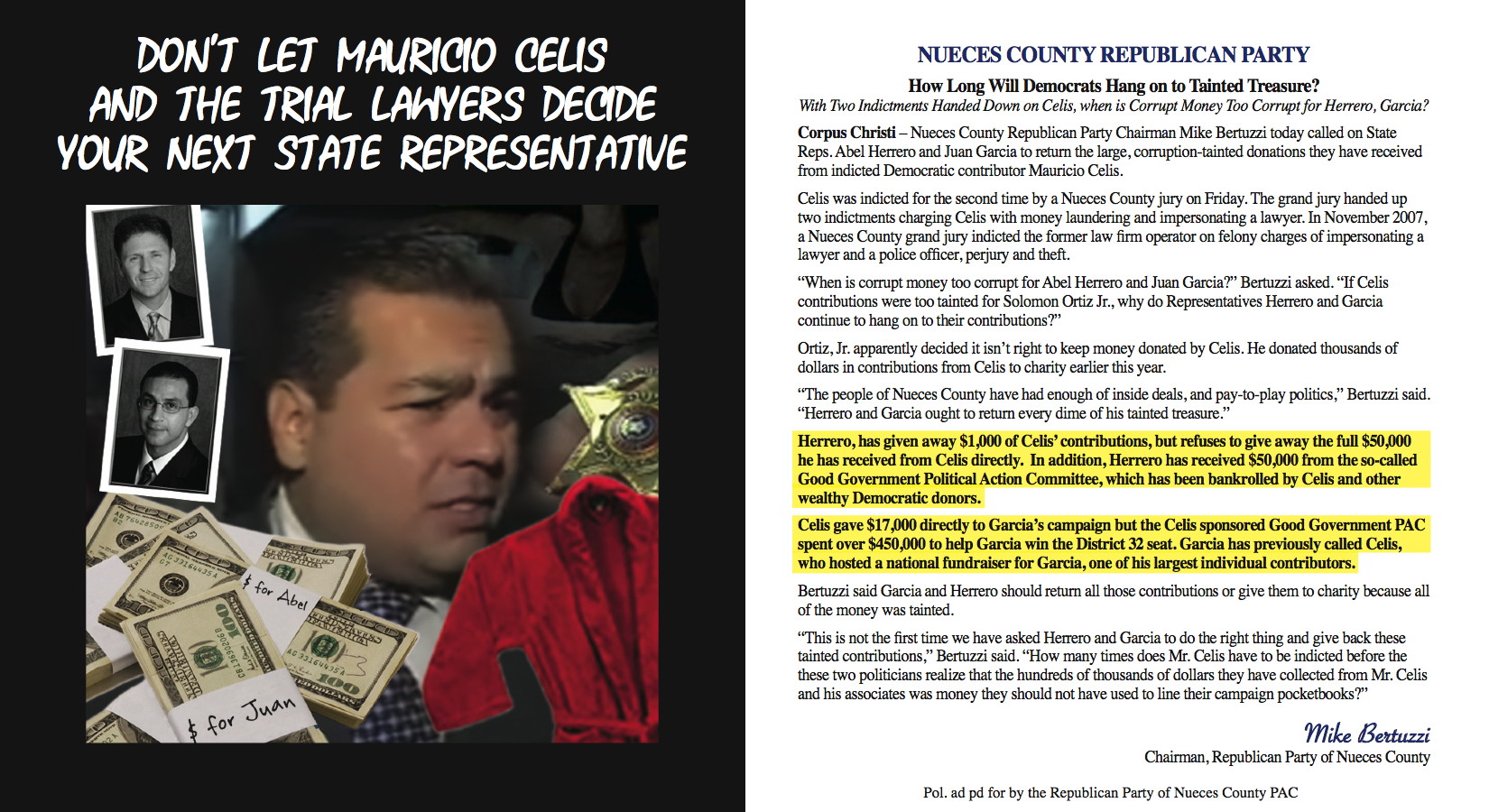Tom Craddick is the talk of the blogosphere again this week. Bloggers are also discussing Democrats and writing about Republicans, while a criminal justice blogger gives his two cents on Eldorado. And then there are the usual posts that didn't fit into categories.
* * * * *
There's Something About Tom
State Rep. Lon Burnam, D-Fort Worth, has asked a committee to investigate whether Speaker Craddick has a "ghost worker" of his own in House Parliamentarian Terry Keel, according to PoliTex, the Fort Worth Star-Telegram's blog.
Burnt Orange Report sends out an APB: "Please feel free to send us any pictures you have of Terry Keel or any Craddick staffer not doing their job during the hours of 8 a.m. until 5 p.m. (typical work hours)." Eye on Williamson has a take, too.
On a semi-related note, Gov. Rick Perry is raising money for Keel's sister-in-law Donna Keel, who's running for the House District 47 seat, reports Postcards from the Lege, the Austin American-Statesman's blog. And Chronic, the AustinChronicle's blog, sums up the "legal kerfuffle" surrounding former Midland city council member's Bill Dingus's bid to challenge Craddick in November. (Another, Off the Kuff, also uses the unlikely word "kerfuffle" this week.)
* * * * *
Blue Streak
Democratic state party chair and superdelegate Boyd Richie says he won't commit to a presidential candidate until after the state convention ends June 8, reports Tex Parte Blog. Burnt Orange has been designated Texas' official blog, granting them credentials to the Democratic National Convention in Denver. And Barack Obama's Texas campaign coordinator is taking a job with the Travis County Democratic Party, according to Postcards.
Capitol Annex goes over the challenges to the Democratic county and state conventions. Here are some of the challenges in Adobe Acrobat (.pdf) format, by Texas Politics, the Houston Chronicle's blog.
State Rep. Mark Strama, D-Austin, is holding his third Strama Campaign Academy from June 23 to July 25, says the show’s manager in Burnt Orange. Meanwhile, Texas Blue pens a hagiography of Democrat Wendy Davis, who's challenging Republican Kim Brimer for his Fort Worth state Senate seat.
Election Law Blog has LULAC's complaint against the Texas Democratic Party's primacaucus system, via VoteLaw.com. That earned LULAC one of Kaos's Cheese Tray Awards," presented to the biggest whiners in politics.
Blue interviews Karl-Thomas Musselman, Rick Noriega's online coordinator and also a writer for Burnt Orange. Texas Kaos notifies readers that Noriega was on Blog Talk Radio. And mean rachel attended a party thrown by Travis County Democrats.
* * * * *
Red Dawn
U.S. Rep. John Culberson, R-Houston, got caught on camera sticking his foot in his mouth. Kuff saw it first, and Blue has video.
The pair of polls showing a tight race between incumbent Sen. John Cornyn and Noriega could help Cornyn raise money, says KVUE's Political Junkie. Meanwhile, Half Empty has some fun with a questionnaire mailed to him from the Republican National Committee.
PoliTex reports that Mitt Romney and Newt Gingrich will headline the Texas GOP convention in June. Austin Political Report takes a moment to provide sordid details about Gingrich's personal life.
ABC News has people covering Sens. Kay Bailey Hutchison and Cornyn as potential running mates for John McCain, but nobody for Perry, according to Texas Politics. And here's the view from PoliTex.
* * * * *
True Grits
Grits for Breakfast does not agree with the state's raid of the Yearning For Zion ranch in Eldorado. He says authorities have been using "phony statistics on pregnant teens." He has a post on FLDS members speaking out on the Internets.
Grits says the state ignored evidence showing that the initial call for help was a hoax. "I'm now fairly convinced Texas will never see any successful criminal prosecutions from the Great Eldorado Polygamist Roundup. They've just screwed it up too badly," he says.
* * * * *
Salmagundi
Texas Libertarians have 174 candidates on the November ballot, a new record, says Chronic. And Vaqueros & Wonkeros, the El Paso Times'sblog, brings readers up-to-date on the state House contest between incumbent Dee Margo and Democrat Joe Moody.
BurkaBlog writes about Attorney General Greg Abbott's ruling against the Lege's needle exchange program. "People will die and medical costs will rise as a result." Meanwhile, Junkie's got a photo of Texas Secretary of State Phil Wilson ringing the closing bell at NASDAQ.
To nobody's surprise, Burnt Orange doesn't agree with a recent state Supreme Court ruling in favor of big-spending Republican Bob Perry. And Annex says Texas isn't caring for its dams.
In The Pink Texas's Pink Lady turned 36. Burnt Orange has a tribute post.
Capitol Crowd's "Person of the Week" is Texas Tomorrow Fund II director Kevin Deiters. State Sen. Florence Shapiro, R-Plano, is going to Israel as part of a White House delegation, reports Postcards. And Mike Falick posted his testimony before the House Higher and Public Education Finance Select Committee on his Mike Falick's Blog.
Headline of the Week award goes to Annex for a post titled, "A $200,000 Bounty For A Write In Opponent To Sheila Jackson Lee?"
This edition of Out There was compiled and written by Patrick Brendel, who hails from Victoria but is spending the spring in the mid-Atlantic region. We cherry-pick the state's political blogs each week, looking for news, info, gossip, and new jokes. The opinions here belong (mostly) to the bloggers, and we're including their links so you can hunt them down if you wish. Our blogroll — the list of Texas blogs we watch — is on our links page, and if you know of a Texas political blog that ought to be on it, just shoot us a note. Please send comments, suggestions, gripes or retorts to Texas Weekly editor Ross Ramsey.



